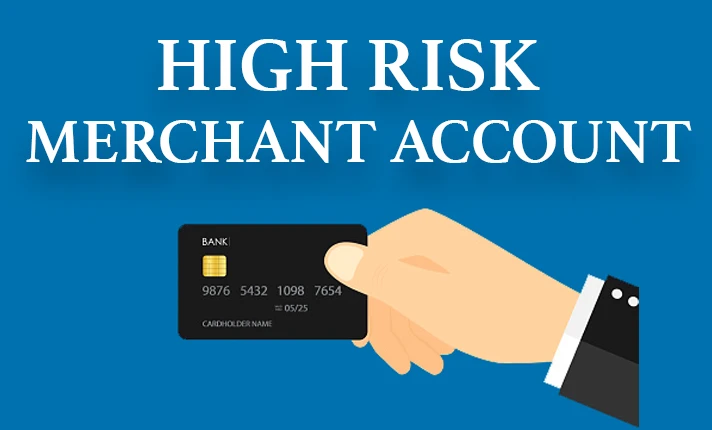AUTHOR : ADINA XAVIER
DATE : 14/09/2023
Introduction

In the world of e-commerce and business transactions[1], merchant processing is crucial for handling credit card payments. However, not all businesses are classified equally in terms of risk. A “high risk merchant processing account[2]” is typically assigned to businesses that pose a higher chance of chargebacks, fraud, or other financial risks. Understanding how to navigate this process is essential for business owners who fall into this category.
In this guide, we’ll explore what a high-risk merchant processing account is, why businesses are classified as high-risk, how to secure one, and answer frequently asked questions.
What is a High Risk Merchant Processing Account?
A high-risk merchant[3] processing account is a specialized payment gateway used by businesses that are considered riskier to work with by payment processors. These businesses often deal with higher rates of chargebacks, refunds, or potential fraud. For this reason, payment processors and financial institutions impose more stringent rules and higher fees.
High-risk merchants may include industries like:
- Online gambling and gaming
- Adult entertainment
- E-cigarettes and vape products
- Travel and ticketing
- Subscription services
- Nutritional supplements and health products
- Debt collection services
These industries typically see more customer disputes or fraudulent activity compared to low-risk industries like retail.
Why are Some Businesses Considered High Risk?
Several factors contribute to a business being classified as “high risk” by payment processors[4]. The main reasons include:

1. Chargeback Risk
Chargebacks occur when a customer disputes a transaction, often leading to a reversal of the payment. High-risk businesses typically experience a higher chargeback ratio[5], which can result in financial losses for payment processors.
2. Fraudulent Transactions
Certain industries are more prone to fraudulent transactions. For instance, e-commerce businesses selling high-ticket items or digital goods may face fraud attempts, which increases the financial risk for the merchant processor.
3. High Ticket Values
Businesses that sell high-ticket items, such as luxury goods or expensive electronics, are considered high-risk. These products often attract chargebacks or fraud due to the large amounts of money involved.
4. Regulatory Compliance
Some industries, like online gambling, require specialized licensing and must adhere to strict legal regulations. Failure to comply with these rules can expose payment processors to financial or legal risks.
5. Market Volatility
Businesses that operate in industries affected by market fluctuations or changes in consumer demand, like travel and tourism, face higher risks, particularly during downturns.
6. Subscription-Based Models
Subscription services that offer recurring payments may face higher rates of disputes, as customers may forget or misunderstand the recurring charges, leading to chargebacks.
How to Secure a High Risk Merchant Processing Account?
Securing a high-risk merchant processing account can be more challenging than for low-risk businesses due to the higher perceived risks. However, there are steps business owners can take to improve their chances:

1. Work with a Specialized Payment Processor
Some payment processors specialize in high-risk accounts. These companies are more familiar with the challenges and risks associated with high-risk businesses and can offer tailored solutions. Look for processors with experience in your industry.
2. Provide Detailed Business Information
Payment processors will want to know about your business in great detail, including your business history, financial stability, and transaction volumes. Providing clear and accurate information can help establish trust and secure an account.
3. Implement Fraud Prevention Measures
High-risk businesses must invest in robust fraud prevention tools to protect both their customers and their merchant accounts. This includes tools like Address Verification Systems (AVS), 3D Secure authentication, and employing chargeback management strategies.
4. Have a Transparent Business Model
Clear, honest communication with customers about your products, services, and payment terms can help reduce misunderstandings and chargebacks. Transparency also helps in building trust with payment processors.
5. Maintain a Low Chargeback Ratio
Keep chargebacks under control by promptly addressing customer complaints and offering clear refund policies. A lower chargeback ratio makes it more likely that a payment processor will approve your application for a high-risk merchant account.
6. Offer Multiple Payment Options
Providing customers with a variety of payment options, such as debit cards, credit cards, and digital wallets, can reduce the risk of chargebacks and disputes.
Fees and Costs Associated with High Risk Merchant Processing Account
A high-risk merchant processing account typically comes with higher fees compared to low-risk accounts. Some common fees include:
1. Setup Fees
Payment processors may charge a one-time setup fee to get your account up and running.
2. Transaction Fees
Transaction fees for high-risk accounts tend to be higher due to the increased risk. These fees are typically charged per transaction or as a percentage of the sale.
3. Chargeback Fees
Since high-risk merchants are more prone to chargebacks, many processors charge additional fees for handling chargeback disputes.
4. Monthly Fees
Some providers charge monthly fees for maintaining the high-risk account, which can include account maintenance, customer support, and fraud monitoring services.
5. Reserve Funds
Payment processors often require high-risk merchants to hold a reserve fund, which is a percentage of each transaction that is set aside in case of chargebacks or refunds.
The Importance of Proper Risk Management

For businesses with a high-risk merchant processing account, effective risk management is essential. This involves monitoring transactions for signs of fraud, implementing anti-fraud tools, and responding to customer disputes quickly and professionally.
Having strong customer service practices, clear terms of service, and transparent refund policies can reduce the likelihood of chargebacks and improve the chances of a long-term, successful partnership with your payment processor.
Conclusion
A high-risk merchant processing account can be crucial for businesses that operate in industries with higher chances of chargebacks, fraud, or regulatory scrutiny. While it may come with higher fees and stricter requirements, the right payment processor can help you navigate these challenges and grow your business.
FAQs
Q1: Are high risk merchant accounts legal?
Yes, high risk merchant accounts are entirely legal and serve a crucial purpose in facilitating payments for certain industries.
Q2: What industries typically require high risk merchant accounts?
Industries such as online gambling, adult entertainment, CBD sales, and nutraceuticals often require high risk merchant accounts.
Q3: How can I reduce chargebacks with a high risk merchant account?
Implementing robust fraud prevention measures and providing excellent customer service can help reduce chargebacks.
Q4: Are high risk merchant accounts more expensive than regular accounts?
Yes, high risk merchant accounts typically come with higher fees due to the elevated risk associated with certain industries.
Q5: How long does it take to get approved for a high risk merchant account?
The approval process can vary, but it often takes a few days to a couple of weeks, depending on the provider and your preparedness.





